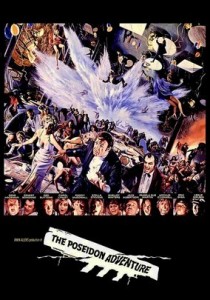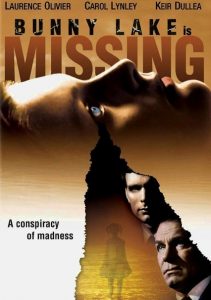The Poseidon Adventure-1972
Director Ronald Neame
Starring Gene Hackman, Ernest Borgnine, Shelley Winters
Top 250 Films #30
Scott’s Review #214
Reviewed January 17, 2015
Grade: A
The disaster genre, primarily represented in film during the 1970s, includes some of my personal favorites, and The Poseidon Adventure (1972) is easily at the top of the list.
Set on a lavish ocean liner, the SS Poseidon, on New Year’s Eve, the doomed ship falls victim to a powerful tsunami while sailing from New York to Athens on its final voyage, causing it to topple over and leaving a handful of survivors to meander through the bowels of the ship in an attempt to find a way out and be rescued.
They are led by a stubborn preacher, played by Gene Hackman.
The appeal of The Poseidon Adventure is, of course, watching the cast of characters in peril and guessing which ones will meet their fates and how- think of a slasher film without the horror component.
Featuring an ensemble cast of Hollywood celebs of the day, the characters are introduced to the audience before the tidal wave erupts, so we care for them immensely.
There is the former hooker with the heart of gold married to a gruff cop (Stella Stevens and Ernest Borgnine as Mike and Linda Rogo).
Then there is the sweet-natured older couple on the cruise to see their grandchild (Shelley Winters and Jack Albertson as Manny and Belle Rosen).
Pamela Sue Martin plays the teen girl, Susan, who falls madly in love with the preacher, Reverend Scott. Robin and her younger brother are traveling to see their parents, who await their arrival.
Roddy McDowall plays a waiter named Acres.
Lastly, Red Buttons plays James Martin, a health-conscious bachelor, and Carol Lynley plays shy singer Nonnie.
Reverend Scott is the moral focal point of the film and questions god several times throughout.
The sets are extraordinary- the colorful Christmas tree in the grand dining room is fantastic. The entire New Year’s Eve party scene is my favorite- it is festive, extravagant, and mixed in with a scene where the ominous tsunami is rapidly approaching.
The festive celebration quickly turns into confusion as the sirens sound, and finally into panic as furniture begins to fly.
Visually, this scene is the most intricate- the ship turns upside down after the crash, thus giving the illusion that the bottom of the ship is the top.
Tricky.
From this point on, all of the sets to follow are intended to be upside down- a crafty and effective style, but none more than the dining room scene.
A victim toppling and crashing into a giant clock is a memorable scene.
As the group of survivors haggardly makes their way throughout the ship, they encounter underwater explosions, dead bodies, rushing water, and disputes, mainly between Reverend Scott and Rogo, as to how to proceed to safety.
One by one a handful of the group meets their fates in gruesome fashion- falling into a fire, a heart attack, and falling to one’s death.
Shelley Winters is the film’s comic relief with her humorous quips about her weight, and her death scene brings me to tears every time I watch it.
A heavyset older woman who, at one time, was a dynamite high school swimmer, she attempts to help the group by holding her breath and swimming underneath the engine room, which is blocked- she does inevitably save the Reverend Scott’s life but succumbs to a heart attack shortly thereafter.
It is a powerful, heartbreaking scene.
The film is a great adventure. What makes The Poseidon Adventure (1972) so timeless and continues to bring so much pleasure? Certainly not high-brow nor high art, but it does not need to be.
It is meant to be enjoyed for what it is- a thrilling, fun, entertaining ride.
Oscar Nominations: 1 win-Best Supporting Actress-Shelley Winters, Best Song Original for the Picture-“The Morning After” (won), Best Original Dramatic Score, Best Costume Design, Best Sound, Best Art Direction, Best Cinematography, Best Film Editing

